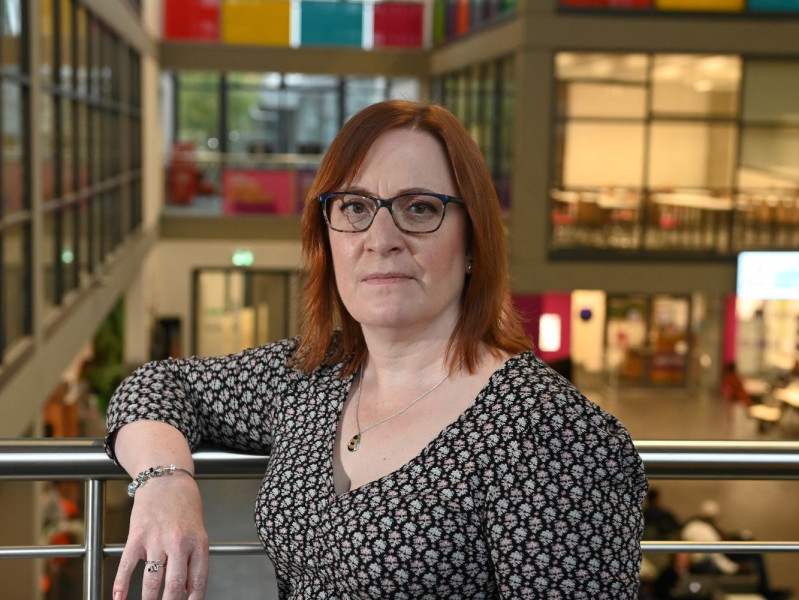Opinion: Momentous assisted dying bill will empower and remove uncertainty
Tuesday 13 May 2025

The Assisted Dying for Terminally Ill Adults (Scotland) Bill is the third bill to attempt to introduce lawful assisted dying into Scotland and if it survives the Stage 1 vote on Tuesday, it will become the first bill to have progressed that far after attempts in 2010 and 2013 both fell at the first stage.
The question for MSPs on Tuesday is whether they agree with the general principles of the Bill and therefore allow it to pass to stage 2 scrutiny and any proposed amendments. The underpinning focus is about personal autonomy, choice, control and self-determination at the most difficult of points in life. It is hemmed with a wide range of safeguards and protections designed to place criteria and limits to eligibility for an assisted death, and to provide a clear and safe legislative framework within which those, and only those, who meet the criteria can choose an assisted death should they wish to.
This bill has been 13 years in the making, with researchers extracting data from permissive jurisdictions all over the world, it has been subject to rigorous and informed debate – as it should.
Legal clarity, compassion and personal autonomy sit at the heart of the Bill, and with that, the ability to take decisions and exercise control over your death from a terminal illness. Under the terms of the Bill, no one is required or compelled to have, or to participate in, an assisted death. For individuals, it is about having a choice between death on their terms, and death on their illness’ terms. For medical practitioners, it is an issue of conscience.
The current legal position on assisted dying is untenable. It leaves everyone – individuals, healthcare professionals, family members, police, lawyers, judges – in a state of uncertainty. The letter of the law identifies these issues as falling within the ambit of homicide. It is absolutely clear that assisting another to end their life is a crime, which brings with it the real possibility of police intervention, prosecution and sentencing. But in practice, judges have tended, where they can, to deal with cases in a way which allows them flexibility in sentencing to the point of admonishing the individual and no more. From this perspective, there is a clear need for legal clarity. However, the issues engaged here are not just the black letter of the law - this is a fundamental question of moral significance.
Are there issues which will require further debate if the Bill progresses to stage 2? Yes. The face of the Bill still sets the lower age limit for requesting an assisted death at 16, although Liam McArthur MSP has already indicated that he will raise this to 18 should the Bill pass to stage 2.
Concerns continue to be raised about whether the Bill opens the door to assisted dying on the grounds of disability. The framing of the eligibility criteria is clear that an individual must have a terminal illness, and capacity to make the decision. Disability alone is not a permissive criterion. There are also fears amongst opponents of the danger of legislative creep, and the ‘slippery slope’. There is often talk of Canada as a cautionary tale, looking at the gradual widening of its eligibility criteria beyond the model legalised in other jurisdictions, but the Canadian model is not what is proposed for Scotland. The development and subsequent changes to their legislation came through constitutional processes at the instigation of their Supreme Court, which could not happen in Scotland. Any further changes to assisted dying legislation (if this Bill is passed) would have to come to the Scottish Parliament and go through the rigorous scrutiny to which all Bills are subject.
Constrained by the principles of sensible bill drafting, the bill does not go into specific detail on how every particular issue would be dealt with in practice - but the face of a Bill is not the place for that detail. Those issues would be dealt with through a combination of secondary legislation and guidance from relevant professional bodies. This would ensure that the nuances of how something would be carried out in practice can be devised in tandem with those relevant professions, for example, what type of training and qualifications will be necessary for those medical practitioners carrying out the multiple assessments required.
Whether or not this Bill passes, the debate has fundamentally shifted our awareness of end-of-life issues and assisted dying. Should it pass, it would mark an important step for Scotland in enshrining control, choice and self-determination for those who meet the eligibility criteria and choose to exercise autonomy and control in this way.
It would, for the first time, provide a legislative framework within which individuals, healthcare professionals and the criminal justice system would be clear about what assisted dying in Scotland looks like. It would avoid the current situation of uncertainty for individuals and families about what is permissible, and perhaps most importantly, remove the fear of being required to live out the final agonies of a terminal illness.
